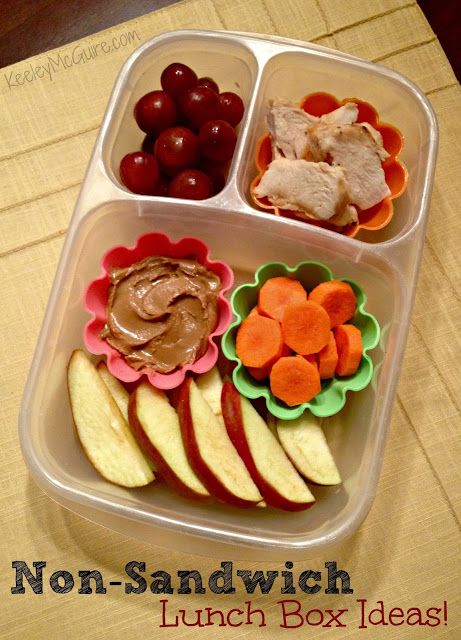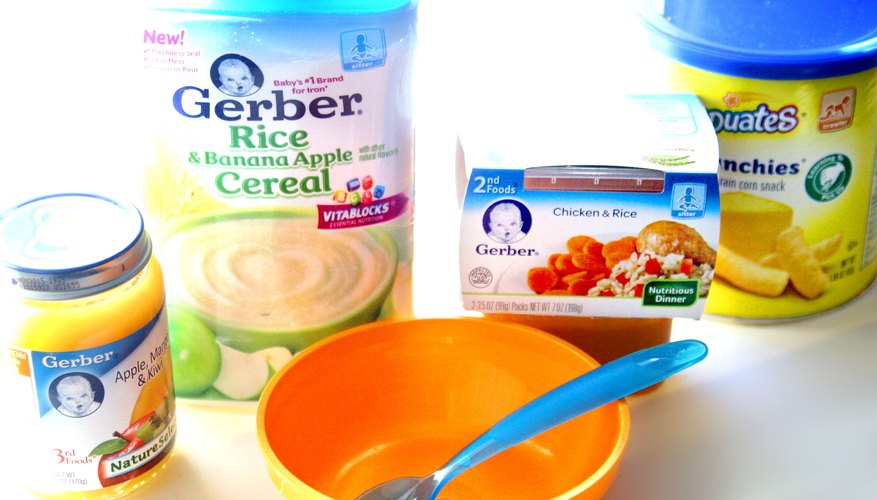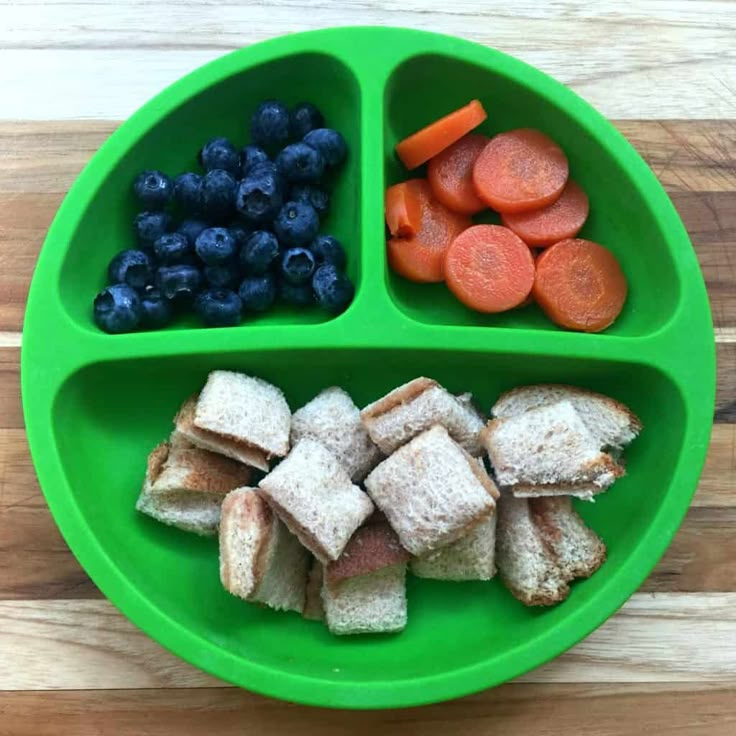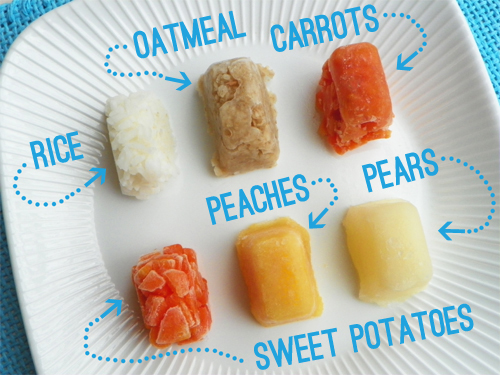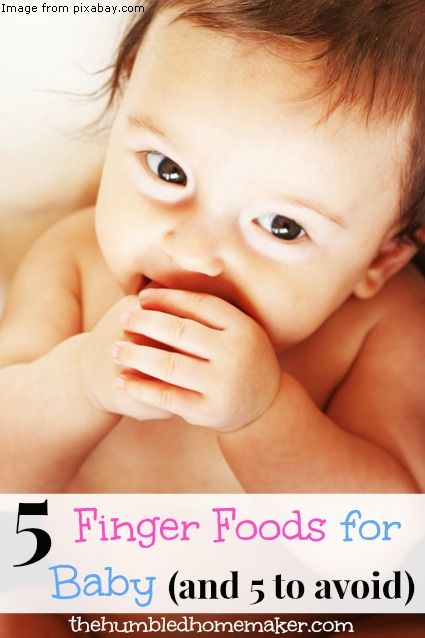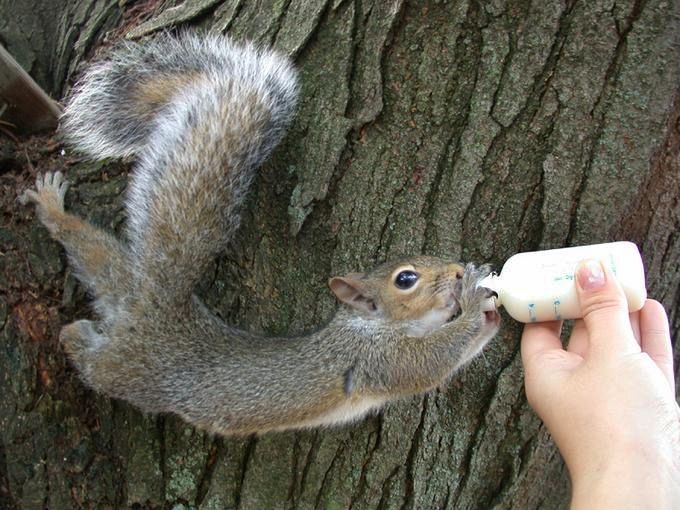How to feed a baby while sleeping
Sleep Feeding - Why Your Baby Only Feeds While Drowsy Or Asleep – Baby Care Advice
You might choose to breastfeed or bottle-feed your baby while sleeping in a bid to influence his night time feeding pattern, or perhaps because it’s now the only way he will feed without dispute. If sleep feeding your baby is something you plan to try, or would like to change, this article may help you decide the next step to take.
What is sleep feeding?Sleep feeding, sometimes called dream feeding, occurs when a baby feeds while drowsy or asleep. Baby might be awake at the start, then fall asleep while feeding and continue eating during light sleep. Or a feed might be provided when baby is already in a drowsy state, while sleeping, or as he begins to arouse from sleep.
Sleep feeding can be baby led – something baby does in response to an underlying feeding or sleeping problem. Or Parent led – something a parent initiates in an attempt to resolve an infant feeding or sleeping problem.
Feeding your baby in a drowsy or sleepy state might not be something you choose to do, rather it could be something you feel compelled to do if he rejects feeds when awake, does not eat enough when feeding while awake, or because he appears to favor feeding in a sleepy state.
Your baby could partially sleep feed. Perhaps he takes some milk awake, then falls asleep while feeding and finishes the rest, or you might wait until he’s asleep before offering the remainder of his feed. Alternatively, your baby might exclusively feed during sleep.
Some reasons babies appear to prefer sleep feeding include:
1. Sleepy newbornsThe time and effort to feed consumes a great deal of energy for a newborn. Newborn babies characteristically begin feeding in an alert state, become drowsy once their initial hunger is satisfied but continue sucking during light sleep, stopping only once deeply asleep or when the bottle is drained.
Most newborns have a strong desire to suck at times in addition to feeding. They particularly enjoy sucking when tired. Newborns have an active sucking reflex, which means they are likely to feed, awake or during light sleep, whenever a feed is offered.
2. Feeding-sleep associationWhen a baby repeatedly falls asleep while feeding, feeding can become a sleep association (something he psychologically links with the act of falling asleep). A feeding-sleep association means a baby will seek to feed (by rooting, sucking his fist, fussing or crying) whenever he is tired and ready to sleep, irrespective of whether he’s hungry at the time or not, because past experiences have taught him that this is how he goes to sleep. Reliance on feeding as a sleep association increases the risk of broken sleep (see Sleep Associations for explanation). So baby’s naps may be cut short causing him to awaken still tired. As a result, he tolerates only short periods awake before tiring and then starts crying to be fed to sleep once again. If a feed is denied, he becomes progressively more distressed. If a feed is provided, he quickly falls asleep. When fed on demand, a baby who has developed a feeding-sleep association that causes broken sleep will appear to want to feed frequently, perhaps more often than expected, and feed mostly in a sleepy state. If his nutritional needs are met during sleep feeds, this eliminates the need to feed while awake, and it becomes increasingly more likely he will feed solely in a sleepy state out of habit.
If a feed is denied, he becomes progressively more distressed. If a feed is provided, he quickly falls asleep. When fed on demand, a baby who has developed a feeding-sleep association that causes broken sleep will appear to want to feed frequently, perhaps more often than expected, and feed mostly in a sleepy state. If his nutritional needs are met during sleep feeds, this eliminates the need to feed while awake, and it becomes increasingly more likely he will feed solely in a sleepy state out of habit.
Pressure applied in an attempt to compel a baby to feed or continue feeding when he doesn’t want to, makes feeding an annoying, unpleasant or stressful experience for baby (and parents). When repeated time and time again, pressure to feed can cause a baby to develop a behavioral feeding aversion. Sleep feeding is a situation that commonly evolves when a baby has developed a behavioral feeding aversion due to pressure.
When averse to feeding, baby becomes distressed and refuses to feed either as soon as he realizes he’s going to be fed or after consuming a small amount (typically, a similar amount each time). However, when drowsy or asleep, and therefore less aware, he lets down his guard, sucking instincts kick in and he feeds well with minimal resistance. After discovering that baby feeds without objection in a sleepy state, many parents choose to wait until their baby is drowsy or lightly asleep before attempting to feed him. That way they can avoid feeding battles. Over time the balance between awake and sleep feeds can shift towards baby being solely fed drowsy or while sleeping.
However, when drowsy or asleep, and therefore less aware, he lets down his guard, sucking instincts kick in and he feeds well with minimal resistance. After discovering that baby feeds without objection in a sleepy state, many parents choose to wait until their baby is drowsy or lightly asleep before attempting to feed him. That way they can avoid feeding battles. Over time the balance between awake and sleep feeds can shift towards baby being solely fed drowsy or while sleeping.
Due to advancements in brain development, babies become progressively more aware of their surroundings during light sleep as they mature. Around 5 months of age, it generally becomes increasing more difficult to sleep feed a baby who has become averse to feeding while awake. If baby senses he’s being fed while sleeping, he will either resist or stop feeding, and if the parent persists he will wake and vigorously reject the feed. When sleep feeding fails, parents may find they have no means to ensure their baby receives sufficient quantities of milk and as a consequence baby’s weight falters. (See Feeding Aversion for more).
(See Feeding Aversion for more).
The 3 problems described above can occur in isolation, or they can be connected. A sleepy newborn is susceptible to developing a feeding-sleep association if parents don’t take active steps to prevent this from occurring. As a result of a feeding-sleep association, over time baby may develop a habit of feeding in a drowsy or sleepy state. Frustration over the fact that baby rejects feeds while awake can cause a parent to try to gently pressure their baby to feed. If pressured to feed, this can cause a baby to develop an aversion to feeding, adding another layer of complexity to this problem. This situation can occur if baby is breastfed or bottle-fed.
Health professionals in general are unaware of the behavioral reasons why this common feeding problem develops. They are therefore unable to advise parents on how to encourage their baby to return to willingly feeding while awake. But we can! Baby Care Advice professionals have extensive experience in supporting parents to resolve these and other types of feeding problems.
FALSE: When a baby displays distressed behavior during feeds, this is commonly attributed to pain associated with acid reflux. (As is most other problematic behavior displayed by healthy babies when the reason is unclear). Sleep does not prevent a baby from feeling pain. If pain is the reason for a baby’s distress at feed times when awake, pain would cause baby to awaken and display distressed behavior when sleep feeds are attempted. Pain associated with the burning effects of acid reflux is not exclusive to awake feeds, and it does not suddenly disappear simply because the feed has stopped. A baby experiencing pain during feeds will scream long after feeding has ceased. (See Reflux for more).
A behavioral feeding aversion is far more likely to be the reason for a baby to display aversive or distressed feeding behavior while awake and yet feed well during sleep. In the case of a behavioral feeding aversion, baby’s distress ends soon after parents stop trying to feed their baby, and he feeds well during sleep because he’s unaware that he’s being fed and therefore does not resist.
In the case of a behavioral feeding aversion, baby’s distress ends soon after parents stop trying to feed their baby, and he feeds well during sleep because he’s unaware that he’s being fed and therefore does not resist.
Most newborn babies will occasionally or often sleep-feed without any obvious complication. However, regardless of whether it is something that is initiated by a parent or baby, there are potential problems linked with sleep feeding.
Sleep deprivation
A feeding-sleep association can result in broken sleep, which could then cause infant distress due to sleep deprivation.
Underfeeding
A chronically sleep-deprived baby might fall asleep before completing the feed. A rigid feeding schedule in this case could result in underfeeding.
Overfeeding
Newborns babies are susceptible to overfeeding because they have an active sucking reflex. Offering feeds that are not demanded could create or add to an overfeeding problem. (The GI symptoms associated with overfeeding are commonly mistakenly blamed on reflux, milk allergy or intolerance. See Lactose Overload for more).
Offering feeds that are not demanded could create or add to an overfeeding problem. (The GI symptoms associated with overfeeding are commonly mistakenly blamed on reflux, milk allergy or intolerance. See Lactose Overload for more).
Tooth decay
The frequency of swallowing decreases during sleep compared to awake. Milk can pool in baby’s mouth providing food for bacteria that cause tooth decay to flourish.
Aspiration
Feeding in a sleepy state increases the risk that a baby might choke or inhale milk into his lungs.
Respiratory infections
Studies show that babies who sleep feed are at increased risk of developing respiratory infections.
Financial strain
The search for a solution that will encourage baby to return to feeding while awake can be an expensive one. The first thing that parents usually try is switching formula, often multiple times. Then different nipples and bottles. When this fails, as it generally does for this type of problem, most parents will then seek medical advice. Typically babies who display aversive behavior when awake are diagnosed with acid reflux. (A diagnosis of acid reflux mostly occurs because medicos in general are unfamiliar with the management of problems such as a feeding-sleep association, feeding aversion, overfeeding and other behavioral problems commonly affecting physically well babies. See Why Others Fail). So baby is prescribed medications, in some cases multiple medications, which may be switched many times. If medications fail to improve the situation, which they will if the source of the problem is behavioral, next baby may be diagnosed with suspected milk allergy or intolerance and switched to a hypoallergenic formula. If that doesn’t help, baby may be referred to one or more medical specialists, a dietician, speech or occupational therapist, and possibly undergo a series of diagnostic tests. (No amount of medication or dietary change will make a difference if the source of baby’s troubles is behavioral and not physical).
When this fails, as it generally does for this type of problem, most parents will then seek medical advice. Typically babies who display aversive behavior when awake are diagnosed with acid reflux. (A diagnosis of acid reflux mostly occurs because medicos in general are unfamiliar with the management of problems such as a feeding-sleep association, feeding aversion, overfeeding and other behavioral problems commonly affecting physically well babies. See Why Others Fail). So baby is prescribed medications, in some cases multiple medications, which may be switched many times. If medications fail to improve the situation, which they will if the source of the problem is behavioral, next baby may be diagnosed with suspected milk allergy or intolerance and switched to a hypoallergenic formula. If that doesn’t help, baby may be referred to one or more medical specialists, a dietician, speech or occupational therapist, and possibly undergo a series of diagnostic tests. (No amount of medication or dietary change will make a difference if the source of baby’s troubles is behavioral and not physical).
Parental stress
When a baby will only feed in a sleepy state, ensuring he gets enough to eat dominates family life. Feeds need to be timed precisely to when baby has just fallen asleep or when he’s stirring awake. Because babies can be in light sleep for a short period of time, the amount of milk taken at each feed may be small, which means baby requires feeding more often than average for age. Most parents feel they’re housebound because they don’t want to miss a feeding opportunity by going out with baby. Parents might choose to sleep feed baby multiple times during the night in a bid to increase his total daily milk intake.The stress associated with hours trying to ensure baby gets enough to eat, exhaustion from providing multiple night feeds, numerous health visits and the associated financial strain, can take a significant toll on parents’ physical and emotional health.
Reasons parents offer dream feedsYou might choose to sleep feed your baby in the late evening for one of the following reasons.
Some babies will have their longest block of continued sleep in the first half of the night and wake in the early hours of the morning to feed. Dream feeding your baby before you go to bed could potentially encourage him to have his longest block sleep from that point onwards, thereby increasing your hours of uninterrupted sleep.
2. Reduce the chance of baby waking at nightIn general, babies under the age of 6 months require one or more feeds during the night. Providing your baby with a feed while asleep, before he wakes to demand one, may enable him to continue sleeping. The benefit is you don’t need to settle him back to sleep.
3. Increase baby’s milk intakeProviding a sleep feed or two at night might increase your baby’s total daily milk intake.
How to dream feed your babyA dream feed is the feed that you give baby before you go to bed. Aim for the feed to be between 10pm and 11pm, but allow 2.5 to 4 hours to go by since your baby's last feed.
Aim for the feed to be between 10pm and 11pm, but allow 2.5 to 4 hours to go by since your baby's last feed.
Keep lights low. Avoid talking or loud noise.
If breastfeeding, gently take your sleeping baby into your arms.
Dream feed a bottle-fed baby in his crib. Prop him on a pillow so that he feeds in a semi-reclined position. Remove the pillow and lay him flat once he has finished feeding. (Never leave your baby to feed unsupervised or leave a pillow in the crib with a baby).
Without waking him gently rub your nipple or the nipple of the bottle across his lips. If he doesn’t react, try to gently open his mouth and insert the nipple.
Burping is usually not necessary because babies generally swallow very little air while sleep feeding. If you feel your baby needs burping, try sitting him in an upright position. Rub his back rather than pat. If he has not burped within 2 minutes, give up.
If you have picked your baby up, return him to bed while he’s still sleeping. If he begins to awaken at any time, try making a shushing sound to soothe him back to sleep.
If he begins to awaken at any time, try making a shushing sound to soothe him back to sleep.
Only change his diaper if its heavily wet or soiled.
Automatic, rhythmical sucking and swallowing is strong during light sleep but decreases as sleep deepens. With a dream feed, your baby may have already been sleeping for a number of hours, and its possible that he could be deeply asleep. If he’s not sucking, you may need to arouse him slightly by stroking his cheek, chest, a hand or foot. If you’re not able to arouse him enough so that he feeds, try a different time tomorrow night.
If you’re already sleep feeding your baby during the day, perhaps because it’s the way he feeds best, you have probably already figured out that feeding him during light sleep (i.e. when drowsy, or shortly after he has fallen asleep, or when he is arousing from a nap) works best.
Disadvantages of dream feedingMany parents swear that a late evening sleep feed (dream feed) promotes better sleep for their baby and therefore better sleep for themselves.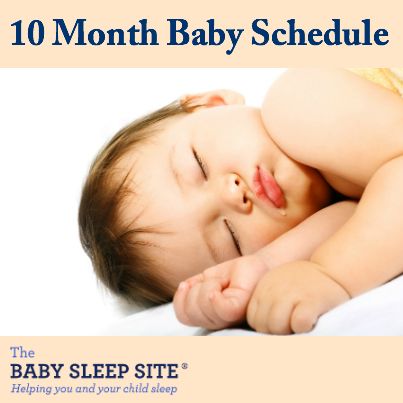 However, others find feeding their baby during sleep does not provide the benefits they hoped for. And in some cases, it has unintended and unwanted consequences; for example:
However, others find feeding their baby during sleep does not provide the benefits they hoped for. And in some cases, it has unintended and unwanted consequences; for example:
Baby doesn’t suck
Babies tend to spend longer periods of time in deep sleep during the first half of the night. If your baby is deeply asleep when you attempt to sleep feed him, there’s a good chance he’s not going to suck. Also the ability to feed while sleeping decreases as a baby gets older
Baby still wakes at the same time
There’s no guarantee that a dream feed will help your baby to remain asleep for the period you hope he will. For many babies dream feeding makes no difference to their nighttime sleeping pattern. They continue to wake at the same time regardless of whether they receive a dream feed or not. Hunger is not the only reason that babies wake during the night. The presence or absence of familiar sleep associations has a strong influence over a baby’s ability to fall asleep and remain asleep, more so the older, and thus more aware, baby becomes.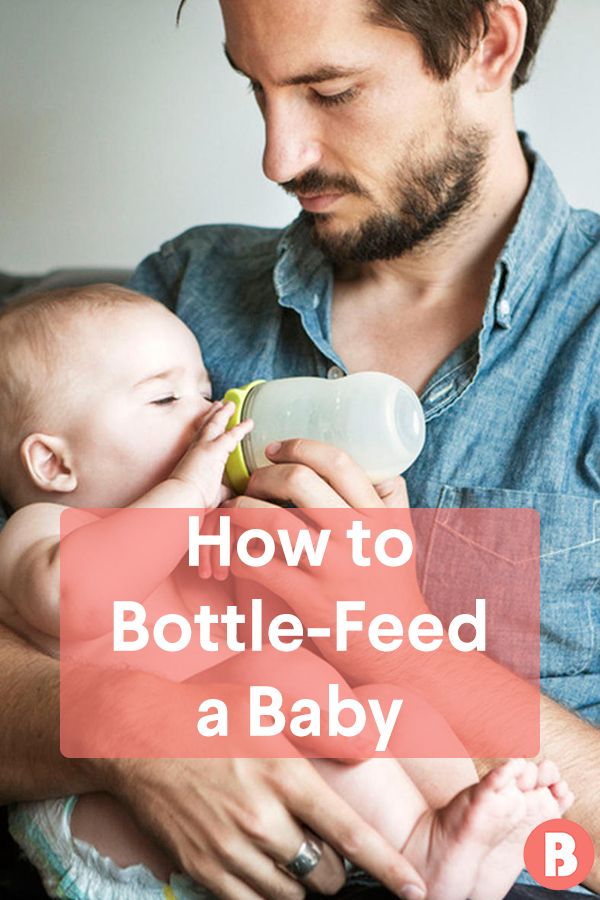
Destabilize baby’s internal body clock
If your baby is not waking to demand a feed around the time you dream feed him, then how do you know he actually needs feeding at that time? The older your baby becomes the more likely it is that sleep feeding will hinder the natural progression of his circadian rhythms (24-hour internal body clock). Sleep feeding can disrupt a baby’s natural sleep-wake patterns causing him to wake more often during the night. It also has the potential to provide more milk than a baby needs to consume during the night, and by doing so decrease his appetite and desire to eat the next morning.
You might lose sleep
Without achieving the benefits you hoped for, sleep feeding could mean you are needlessly sacrificing some of your sleep by staying up late or getting up at a set time to provide your baby with a feed that he may not need.
Disadvantages also include the potential problems associated with sleep feeding listed above.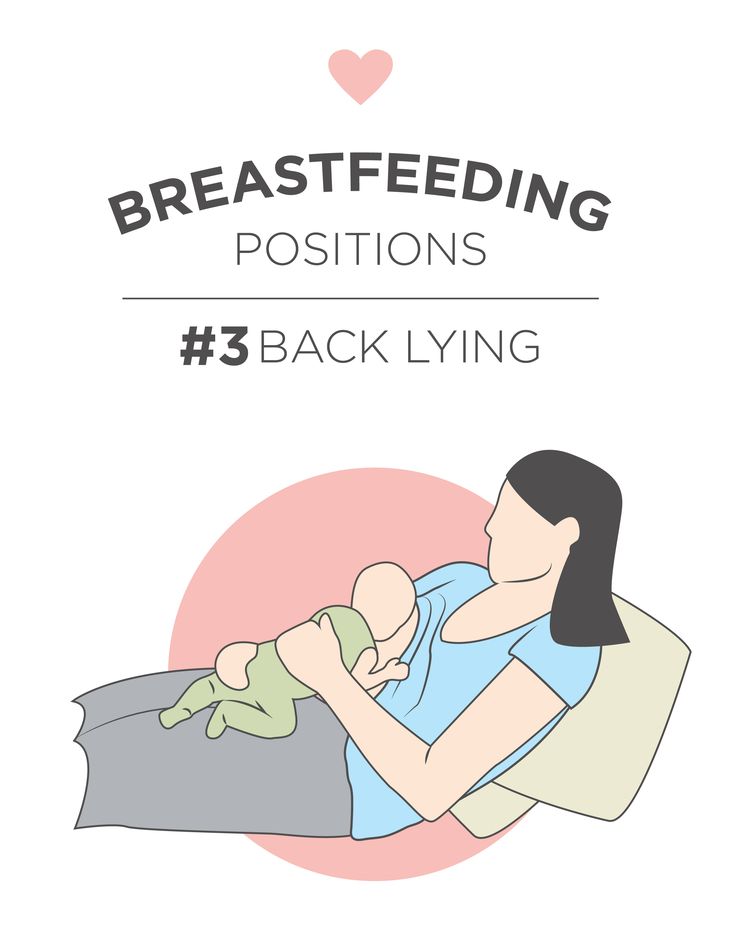
Written by Rowena Bennett
© Copyright Babycareadvice.com. All rights reserved. Permission from author must be obtained to reproduce all or any part of this article.‘Your Baby's Bottle-Feeding Aversion’ book
In my book, ‘Your baby’s Bottle-feeding Aversion’, I have described physical and behavioral reasons for babies to develop an aversion to bottle-feeding. How to identify the cause and the solutions to match. Included are step-by-step instructions on how to regain your baby’s trust and resolve a feeding aversion caused or reinforced by repeated pressure to feed.
While the book was written for bottle-fed babies, many nursing mothers have found that applying the same strategies has also helped them to successfully resolve a breastfeeding aversion.
You might find that reading this book is all you need to do to understand the steps you need to take to resolve your baby’s feeding aversion and get him back to the point of enjoying eating until satisfied.
Six time-saving modules to help your family enjoy feeding again with Rowena's step-by-step plan. Enjoy additional tools to manage anxiety, troubleshoot any issues, introduce new carers, how to manage illness/teething and much more.
- Module 1: Understanding feeding aversions
- Module 2: Identify the cause
- Module 3: Prepare for success
- Module 4: How to resolve your baby's bottle-feeding aversion
- Module 5: What to expect
- Module 6: Troubleshooting
- BONUS: Guided meditations
What Is Dream Feeding? And How Do I Dream Feed? – Happiest Baby
By Dr. Harvey Karp, MD, FAAP
On This Page
- Dream Feeding: What It Is
- How to Dream Feed
- How to Get Your Baby Back to Sleep
- Dream Feeding Tips
- Dream Feeding Benefits
- Adding a Second Dream Feed
- When to Stop Dream Feeds
- Final Thoughts on Dream Feeds
Newborn babies eat a lot.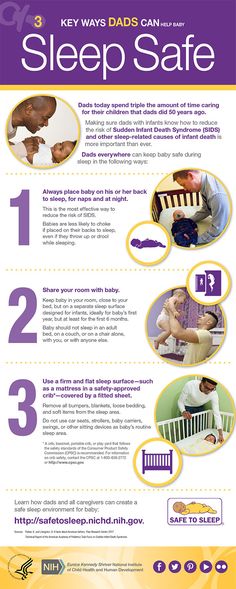 Breastfed infants eat about every two to three hours and formula-fed babies hit the bottle every three to four hours…and that doesn’t stop when bedtime calls. In fact, bottle-fed babies often continue night feedings until they’re around 6 months old, whereas breastfed babies may continue up to a year. But that doesn’t mean that there’s nothing you can do to tame night-waking. If your little one wakes up hungry each night, it’s smart to increase daytime milk (research shows that infants who received more milk or solid feeds during the day are less likely to feed at night) and boost their evening calories by way of a dream feed. Think of a dream feed as topping off your car’s gas tank...so there's no need to refuel during the journey ahead. Offering your baby a dream feed will eliminate—or at least delay—one of the top reasons babies wake through the night: a rumbling tummy.
Breastfed infants eat about every two to three hours and formula-fed babies hit the bottle every three to four hours…and that doesn’t stop when bedtime calls. In fact, bottle-fed babies often continue night feedings until they’re around 6 months old, whereas breastfed babies may continue up to a year. But that doesn’t mean that there’s nothing you can do to tame night-waking. If your little one wakes up hungry each night, it’s smart to increase daytime milk (research shows that infants who received more milk or solid feeds during the day are less likely to feed at night) and boost their evening calories by way of a dream feed. Think of a dream feed as topping off your car’s gas tank...so there's no need to refuel during the journey ahead. Offering your baby a dream feed will eliminate—or at least delay—one of the top reasons babies wake through the night: a rumbling tummy.
Dream feeding is when you rouse your baby—without fully waking them up—to feed them one more time before you turn in for the night. Babies who go to sleep between 6pm and 8pm often wake out of hunger in the middle of the night. But research has shown that sneaking in an extra feed between 10pm and midnight can reduce night wakings, helping babies stay asleep until a more “reasonable” time of the morning. This can become part of your little one’s regular sleep schedule.
Babies who go to sleep between 6pm and 8pm often wake out of hunger in the middle of the night. But research has shown that sneaking in an extra feed between 10pm and midnight can reduce night wakings, helping babies stay asleep until a more “reasonable” time of the morning. This can become part of your little one’s regular sleep schedule.
The goal of a dream feed is to offer your little one more meal before you hit the hay, so that you and your baby’s schedule sync better…and you both sleep better. Ready to try it? Follow these steps:
-
Step 1: Gently take your baby out of the bassinet or crib between 10pm and 12am, or whenever when you go to bed. Keep the room dim and quiet, except for white noise. Doing this during Baby’s more active REM sleep is ideal. During REM sleep your baby may flutter their eyelids, make little squeaks and squawks, or move around more than usual.

-
Step 2: Keep your baby swaddled. There’s no need to unswaddle—or change your baby’s diaper—if they’ll take the feed that way and their diaper isn’t soiled. (If your baby is super sleepy, you may need to rouse them a bit by gently tickling their toes.)
-
Step 3: Touch Baby’s cheek with your breast or bottle. Placing your breast or bottle on your baby's cheek or lower lip will wake up their rooting reflex and get your baby to start eating.
-
Step 4: Offer a brief feed. Encourage nursing for 5 to 10 minutes on each side. For bottle-fed babies, try for about 3 ounces.
-
Step 5: Burp your baby. Many parents ask: Do you burp a baby after a dream feed? and the answer is always yes. You want to burp a baby after a dream feed—or any feed—before putting them back down on their back.
Oftentimes, a baby who has just enjoyed a dream feed can be returned to their bassinet with nary a wakeup. But if your little one has woken up during or after a dream feed, you can get them back down with the help of the 5 S’s: Swaddling, Side/Stomach, Shushing, Swinging, Sucking.
But if your little one has woken up during or after a dream feed, you can get them back down with the help of the 5 S’s: Swaddling, Side/Stomach, Shushing, Swinging, Sucking.
First, if you haven’t already, swaddle your baby and put on some rumbly white noise. I recommend playing white noise all night, but you can turn up the volume as you’re putting your baby back down. The most effective white noise for sleep is continuous, monotonous, and at a low-pitch, like my SNOO sounds download or SNOObear, Happiest Baby’s white noise lovey.
At the same time, gentle rhythmic motion can help lull babies to sleep. In fact, a 2019 study in the journal PLOS ONE found that the magical mix of swaddling, white noise, and rocking “evokes an immediate calming response” when caregivers soothe their infants and when they use SNOO, my responsive bassinet. SNOO uses womb-like white noise and motion (and a built-in swaddle!) to quickly settle babies back to sleep after a feed…usually adding sleep for the whole family.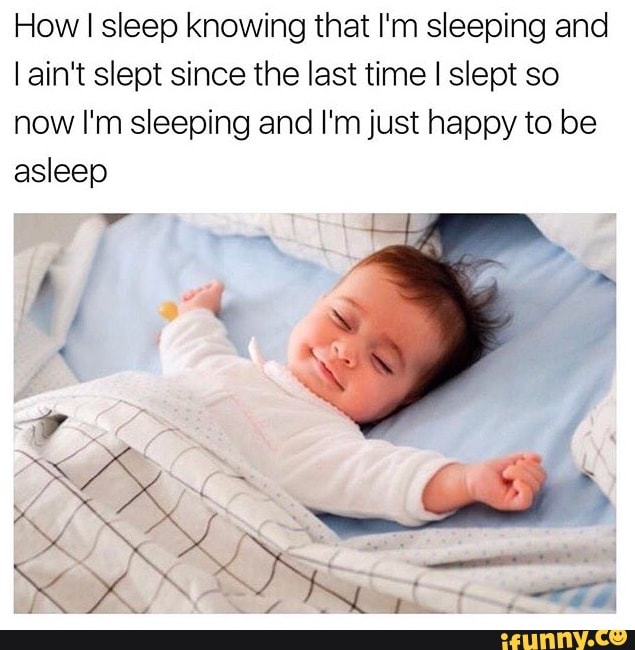
Other time-tested tricks to help a baby sleep after a dream feed include rocking in a rocking chair, walking with your baby in your arms, bouncing on an exercise ball, and offering a pacifier, which fulfills the Sucking portion of the 5 S’s. As an added bonus, research suggests a bedtime paci helps lower the risk of sudden infant sleep death, or SIDS.
As you put your little one back into their bassinet, do my quick wake-and-sleep trick, which teaches your baby to fall asleep on their own. Here’s the gist: Right after you put your baby down, gently rouse them with a gentle tickle on their feet until they barely open their eyes. After a few seconds, they’ll close their eyes again and slide back to sleep. If your little one fusses, pick them up for a feed or a cuddle, then repeat the gentle-tickle-to-wake routine.
Set your baby up for dream feed success:As I mentioned earlier, the one-two punch of adding daytime calories and dream feeds can really work wonders to help babies sleep longer. Try offering cluster feeds from about 4pm till bedtime. Cluster feeds are a series of quick milky meals given to Baby every one to two hours. They’re meant to load your little one’s system with calories to keep them well stocked with nutrition through the night. At the same time, put your little one down for night-night safely swaddled with your trusted white noise on. Consider this another “dream team” to help Baby sleep better!
Try offering cluster feeds from about 4pm till bedtime. Cluster feeds are a series of quick milky meals given to Baby every one to two hours. They’re meant to load your little one’s system with calories to keep them well stocked with nutrition through the night. At the same time, put your little one down for night-night safely swaddled with your trusted white noise on. Consider this another “dream team” to help Baby sleep better!
A wonderful thing about dream feeding is that doesn’t interfere with your little one’s need to feed at night. Instead, dream feeding simply shifts your baby’s feeding schedule just a bit so that it’s more conducive to your sleep schedule, too. Plus, dream feeding means that…
- Your baby will get the extra calories they need to sleep better.
- Your baby is eating a meal at a convenient time, so you can sleep longer, too.
- You’re not responding to your baby’s crying with food, which is important because reacting to cries with a feed can inadvertently encourage your baby to eat more at night.

- Your baby will eat less during the night and therefore be hungrier in the morning, which will boost daytime eating.
If your baby frequently wakes around 3:30am despite having an earlier dream feed and using strong, rumbly white noise, consider setting your alarm and giving one more dream feed at 3am. Again, it’s best to keep the lights dim and to not talk or cuddle too much at this hour. You want to be loving when you feed your baby, but you don’t want your little one to think that it’s time to play! The idea is to pick up and feed your little one before they wake you, so you’re giving your baby the nourishment they need, but not rewarding them for waking and crying.
If you must do this early-morning dream feed, every three days, reduce the 3am feed a bit more by giving a little less milk than usual. If you’re nursing, just feed on one side for the second dream feed. If you’re bottle-feeding, you can try doubling the amount of water the formula directions suggest—for just ONE feeding and ONLY for a couple days. This is very important: It’s dangerous to dilute baby formula for meals. It can cause serious health problems. Diluting for this ONE wee-hour feed for a brief period of time is different. The purpose of the extra water is to fill your baby’s stomach with enough ounces, but fewer calories. This can help babies sleep through to morning…when they will be hungry and ready to eat their full bottle again. Again, this is a temporary fix only to be used for the 3am dream feed—and only for a couple of nights.
This is very important: It’s dangerous to dilute baby formula for meals. It can cause serious health problems. Diluting for this ONE wee-hour feed for a brief period of time is different. The purpose of the extra water is to fill your baby’s stomach with enough ounces, but fewer calories. This can help babies sleep through to morning…when they will be hungry and ready to eat their full bottle again. Again, this is a temporary fix only to be used for the 3am dream feed—and only for a couple of nights.
All babies are different, so there is no specific age recommendation for stopping a dream feed. My general rule is that you can bid adieu to the dream feed 2 to 4 weeks after your baby is sleeping well from the time of your dream feed on through to the morning. (Learn when your baby might start sleeping through the night.) Of course, if the dream feed isn’t working for you, there’s no need to continue!
Final Thoughts on the Dream Feed and Other Sleep TipsOffering a dream feed to your snoozing baby before you declare “lights out” may give you a chance to catch more precious ZZZs, which, of course, is fantastic! Giving a dream feed can also help train your sweet pea to stay asleep for longer stretches…and that skill can carry over to better night sleeps down the road, too.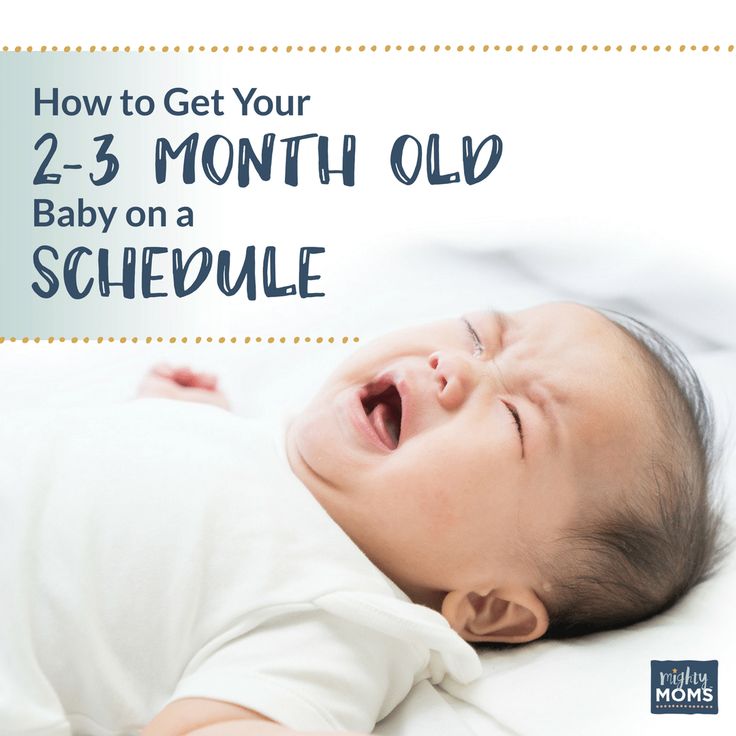 Beyond dream feeding, if your newborn baby is having difficulty sleeping, you may need a little extra help lulling them to dreamland. This is where I hope SNOO can help exhausted families by automatically soothing fussing with gentle rocking and white noise. You can learn more about SNOO and find other great sleep resources below:
Beyond dream feeding, if your newborn baby is having difficulty sleeping, you may need a little extra help lulling them to dreamland. This is where I hope SNOO can help exhausted families by automatically soothing fussing with gentle rocking and white noise. You can learn more about SNOO and find other great sleep resources below:
- SNOO Success Stories
- All About Your Baby’s Wake Windows
- What to Do When Your Baby Won't Sleep in a Bassinet
- How to Turn On Baby’s “On Switch” for Sleep
- Sleep Regression 101
About Dr. Harvey Karp
Dr. Harvey Karp, one of America’s most trusted pediatricians, is the founder of Happiest Baby and the inventor of the groundbreaking SNOO Smart Sleeper. After years of treating patients in Los Angeles, Dr. Karp vaulted to global prominence with the release of the bestselling Happiest Baby on the Block and Happiest Toddler on the Block. His celebrated books and videos have since become standard pediatric practice, translated into more than 20 languages and have helped millions of parents. Dr. Karp’s landmark methods, including the 5 S’s for soothing babies, guide parents to understand and nurture their children and relieve stressful issues, like new-parent exhaustion, infant crying, and toddler tantrums.
Dr. Karp’s landmark methods, including the 5 S’s for soothing babies, guide parents to understand and nurture their children and relieve stressful issues, like new-parent exhaustion, infant crying, and toddler tantrums.
View more posts tagged, feeding
Have questions about a Happiest Baby product? Our consultants would be happy to help! Connect with us at [email protected].
Disclaimer: The information on our site is NOT medical advice for any specific person or condition. It is only meant as general information. If you have any medical questions and concerns about your child or yourself, please contact your health provider.
interpretation of dreams about breastfeeding according to the dream books of Miller, Vanga, Freud, Loff
According to Carl Jung's theory, dreams are the guiding words of the soul. Although there is still no consensus on why we see them and what they mean, the analysis of night visions can help us understand the hidden area of our mind. A dream about breastfeeding can have a direct personal message to the sleeping person, hinting that one of your loved ones needs love, tenderness and care. Let's figure out together with an expert why breastfeeding is a dream from the point of view of psychology.
A dream about breastfeeding can have a direct personal message to the sleeping person, hinting that one of your loved ones needs love, tenderness and care. Let's figure out together with an expert why breastfeeding is a dream from the point of view of psychology.
Breastfeeding in Longo's dream book
Yuri Longo believes that a dream about breastfeeding a child symbolizes love and affection. The script may hint that someone or something in your life needs care and protection. Also, this dream can reflect your own emotional need for love. Sometimes a dream is inherent in pregnant women. Such a night vision can appear to anyone. For example, if a man dreamed of such an action, it symbolizes the manifestation of your hidden talents to achieve everything you wish.
Breastfeeding a baby in Miller's dream book
A dream about breastfeeding a baby means that your unconscious desires to cultivate its creative ideas and start a new life.
The dream of a girl who has recently entered into a relationship with a partner represents the need to develop an alliance that has become very dear. You want to be loved and cared for. Thus, by maintaining close relationships, you can feel emotionally secure.
Women's breasts are a symbol of deep care. It also symbolizes the close bond between mother and child. A dream may advise you to take care of the people around you, you must support your family members, be close to friends in difficult times.
Breastfeeding in Vanga's dream book
A dream about breastfeeding symbolizes maternal affection. It represents a mutually beneficial relationship, full of tenderness, compassion, love and mutual care. A dream promises emotional support and your deepest desire to take care of people close to you.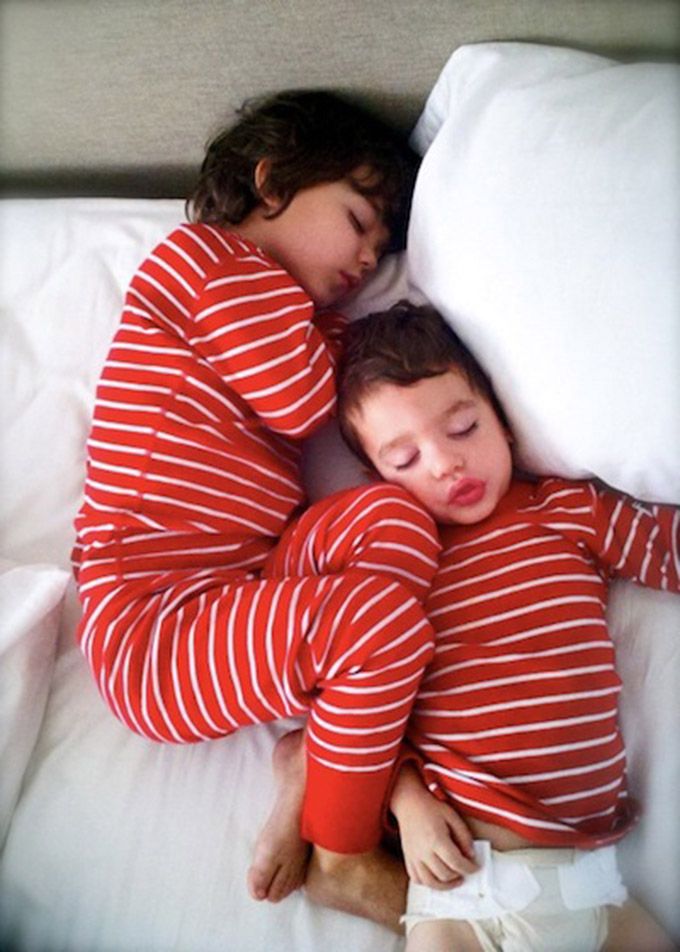 Sometimes such a dream can be interpreted as the satisfaction of primitive needs for protection. You are encouraged to nourish and cherish, love and comfort others who need it. Also, such a vision of breastfeeding symbolizes that life is beautiful and all good things will come to you.
Sometimes such a dream can be interpreted as the satisfaction of primitive needs for protection. You are encouraged to nourish and cherish, love and comfort others who need it. Also, such a vision of breastfeeding symbolizes that life is beautiful and all good things will come to you.
Breastfeeding in Loff's dream book
According to Loff's book, a dream asks you to give up old habits and go on a new journey full of love and care. The unconscious may hint at motherhood. The dream symbolizes harmony, prosperity, growth and new beginnings.
Also, vision represents a sense of belonging that you cannot live without, a deep attachment that is difficult to get rid of. You are not ready to let this person go out of your life.
Breastfeeding in Freud's dream book
Perhaps deep down you have a feeling of helplessness and insecurity. You need someone who will protect you, guide you the right way in life. There is an unconscious desire to depend on someone who is able to make decisions on your behalf. Sometimes a dream hints at the need to become independent and let go of your addiction.
There is an unconscious desire to depend on someone who is able to make decisions on your behalf. Sometimes a dream hints at the need to become independent and let go of your addiction.
Breastfeeding in the Hindu dream book
You cling to something or someone for emotional support. It is not easy for you to let go or separate from this source of care. You are holding on to past habits that you no longer need. But you are in love with them and they limit your growth path. Sleep symbolizes the fear of separation, it also means your inability to leave your comfort zone and emotional well-being.
Just remember that as you get older you will have to make room for new things in life.
Breastfeeding in the Family Dream Book
The dream symbolizes a low level of confidence and self-esteem. You are uncomfortable in your own body. Feelings of dependency on others usually come from feeling insecure. You are not happy being yourself.
The dream reminds you to stay positive. You have the power to change and live the life you want. Just focus on the positive things that surround you. Learn to challenge your negative beliefs and erroneous thoughts.
You have the power to change and live the life you want. Just focus on the positive things that surround you. Learn to challenge your negative beliefs and erroneous thoughts.
Breastfeeding in Tsvetkov's dream book
A dream about breastfeeding a child symbolizes kindness and positive. It represents parenthood, new beginnings, self-development, and achieving your life goals. As well as favorable changes that will come into your life. Thus, a dream promises hope for a better future.
Breastfeeding a baby in a dream, according to Tsvetkov, may mean that you will receive good news soon. This may be the news of pregnancy or building a new relationship. The dream portends pleasant events in the near future. Do not hesitate, all your problems will soon clear up, and you will achieve the best and greatest.
Breastfeeding in the dream book of Nostradamus
Breastfeeding in a dream symbolizes the creation of a new family. A vision can warn you of a possible pregnancy. And if you are expecting a baby, then it projects your subconscious concern for the fetus. The vision encourages you to embrace new changes and take the next step towards success. This dream is a sign of good luck, spiritual bliss, financial stability, as well as family happiness.
And if you are expecting a baby, then it projects your subconscious concern for the fetus. The vision encourages you to embrace new changes and take the next step towards success. This dream is a sign of good luck, spiritual bliss, financial stability, as well as family happiness.
Breastfeeding in Hasse's dream book
When you dream of breastfeeding, be sure that changes will soon take place in your waking life. You can move to a new job or start a relationship. The dream action carries a message of positive change. When in real life you are not married and not pregnant, but still see this dream, it means that you are hatching a creative idea in reality. You are on the path of self-development.
Expert comment
Victoria Borzenko, astrologer, tells the meaning of sleep:
Such dreams can be instinctive, that is, reflect the intuitive desire for pregnancy in reality. This happens to many women even before the tests actually confirm the upcoming happy event.
By the way, such dreams are often seen by men who dream of having a child and starting a family.
Night visions about breastfeeding a baby can be associated with the concepts of protection, guardianship, fatherhood, creating and strengthening bonds between family members. The very act of breastfeeding in a dream usually has a positive meaning. Subconscious illusion will bring good luck.
Why dream of breastfeeding a child
Why dream of breastfeeding a child
A dream in which you had to breastfeed a child predicts enrichment. It will bring a new job, high position, part-time job or entrepreneurial activity. Having solved all the money problems in one fell swoop, you will feel relief.
Focus your efforts on the professional sphere. They will be rewarded with high salaries or paying customers.
Content of ArticleBreastfeeding a baby
A vision where it happened to breastfeed a baby indicates the humane qualities of the sleeping person.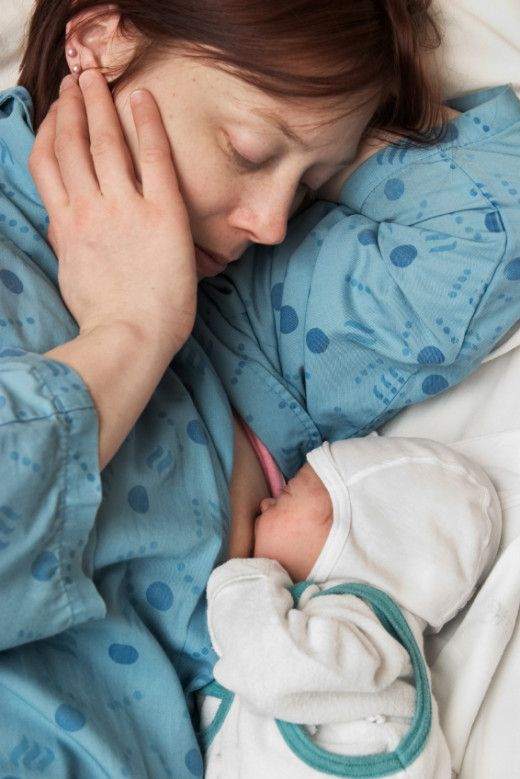 Among them there is caring, good nature, attentiveness with which you surround your family and friends. When they feel bad, they know that they can rely on you.
Among them there is caring, good nature, attentiveness with which you surround your family and friends. When they feel bad, they know that they can rely on you.
Breastfeeding someone else's child
Breastfeeding someone else's child in a dream - to troubles in reality. They will be created by an outsider, to whose request you will gladly respond. Due to a colleague's report or an elderly neighbor's illness, there will be no time to do things you love.
Breastfeeding a boy
Breastfeeding a boy - to sudden joy in reality. Most likely you will be presented with a pleasant surprise, a declaration of love or a profitable offer. A hurricane of positive emotions will make it easier to look at current problems.
Breastfeeding a girl
I had to breastfeed a girl in a dream - in the near future you will be swallowed up by household chores. They will be associated with moving, repairs, visiting relatives or organizing a magnificent celebration.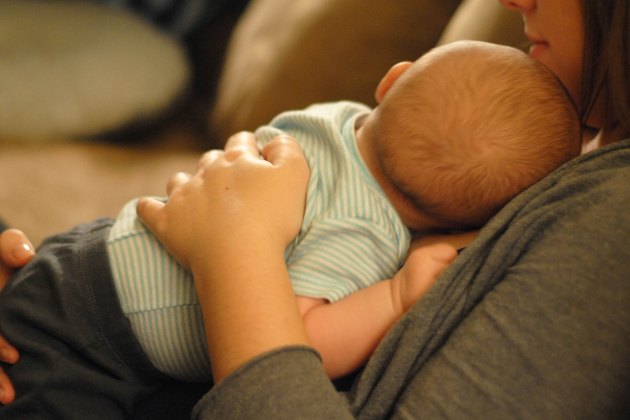 Composure and diligence will help to successfully resolve the tasks that have come before you.
Composure and diligence will help to successfully resolve the tasks that have come before you.
Breastfeeding a baby according to Miller's dream book
The dream in which you are breastfeeding a baby is a hint that in reality you can finally realize your plan. Any of your undertakings will be crowned with great success. You will have a chance to realize your potential, thanks to which your financial situation will noticeably stabilize.
If in a dream you saw someone breastfeeding a baby, this dream promises a happy marriage and the birth of several children.
An unmarried girl dreams that she is breastfeeding a baby - to joy, luck, which may turn out to be fleeting. Do not relax, so as not to miss the moment of change. For a married woman, such a dream portends happiness, success in business. The dream in which you are breastfeeding promises the fulfillment of your desires.
Breastfeeding a child according to Freud's dream book
If you dreamed that you were breastfeeding a child, you feel embarrassed before entering into a relationship.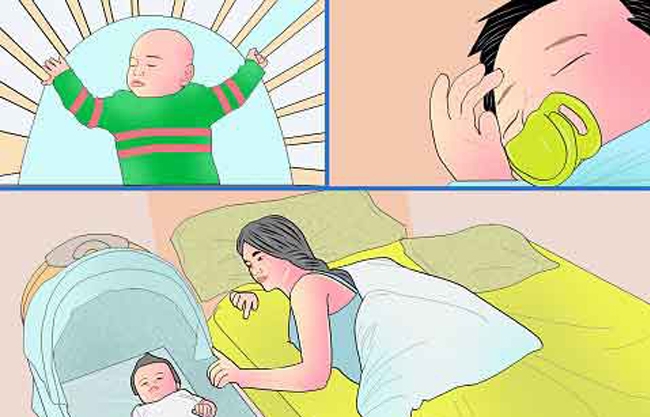 Such a dream suggests that you are a sensual, vulnerable person who knows how to enjoy intimate relationships.
Such a dream suggests that you are a sensual, vulnerable person who knows how to enjoy intimate relationships.
Breastfeeding a child according to Hasse's dream book
Happiness; for unmarried - fragile fun.
Breastfeeding a child according to Evgeny Tsvetkov's dream book
Why dream of breastfeeding a child in a dream - not wanting to pay attention to your own vices and take measures to eradicate them. The dream in which you are breastfeeding a child indicates that you will suffer from your own laziness and inconstancy. You are prone to frequent tantrums and changes in your sexual partner, which cannot but affect your mental state.
Breastfeeding a child according to the Islamic dream book
Breastfeeding - indicates a need. And if a woman sees in a dream that a certain man is sucking her breast, then, verily, he will seize her property for himself. Why dream that you are feeding a baby - And if the patient sees that she is breastfeeding, then she will recover.
Why dream of breastfeeding a baby in a dream - to the opportunity to realize what was planned and favorable changes in life. The dream in which you are breastfeeding a baby suggests that soon you will meet a person who will radically change your life. Such a dream is interpreted as positive.
Breastfeeding a child according to the Christian dream book
Breastfeeding a child (for women) - a happy marriage and healthy children. Imagine that you are feeding not one, but two babies at the same time - certainly girls.
Breastfeeding a child according to the Women's Dream Book
If you dreamed that you were breastfeeding a child, this is a very good sign. Such a dream predicts the onset of a period of your life that is favorable in all respects. Without a doubt, you can take on the implementation of plans and the embodiment of your plans in reality - everything will certainly work out. Relations with the opposite sex will also be favorable. Married women are waiting for a family idyll and harmony in relationships, and the girls will meet their future husband.
Dreaming of breastfeeding in a dream - you need help and care or seek to help and support someone else. If you dreamed that you were breastfeeding someone else's child, your help will not be appreciated by those to whom you provide it. Such a dream means empty chores, useless deeds, a senseless effort to help others. Those people for whom you are trying will be ungrateful and will not appreciate your efforts.
Breastfeeding a child according to the dream book of Nostradamus
Breastfeeding a child in a dream means taking care of your future and the future of your children. Such a dream symbolizes faith in oneself and hope for a happy future, which will undoubtedly be justified.
Breastfeeding a child according to Loff's Dream Book
Seeing in a dream breastfeeding a baby in public means that your hidden thoughts and hidden desires can become public. Do not rush to share them with others to prevent the fact of disclosure. If a pregnant woman dreams that she is breastfeeding a baby, her birth will be quick and painless, and the baby will be born strong and healthy.

